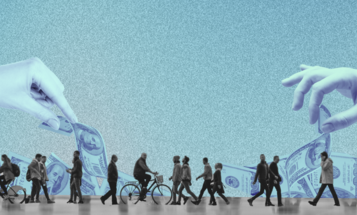
Another Secret Database Keeps You from Getting Hired
As if the use of your personal credit information for hiring wasn’t sufficiently invasive and the collection and sale of employment data in the form of The Work Number wasn’t insidious enough, today’s New York Times has news of another secretive, unverified and unverifiable database that is shutting American workers out of jobs.
Facing a wave of employee theft, retailers across the country have helped amass vast databases of workers accused of stealing and are using that information to keep employees from working again in the industry.
The repositories of information, like First Advantage Corporation’s Esteem database, often contain scant details about suspected thefts and routinely do not involve criminal charges. Still, the information can be enough to scuttle a job candidate’s chances.
Some of the employees, who submit written statements after being questioned by store security officers, have no idea that they admitted committing a theft or that the information will remain in databases, according to interviews with consumer lawyers, regulators and employees.
Understandably no employer wants to hire workers who will steal from them. But employers might just have options other than resorting to black-list like secret databases that offer job applicants limited opportunities to contest allegations against them and correct the record.
It’s telling that these employee theft databases are most prevalent among big companies in the retail industry, an economic sector that includes many large and profitable companies that nevertheless pay their frontline workforce wages that keep them in poverty.
Harvard Business School professor Tatiana Sandino suggests that retail’s low wages and employee thefts may be linked. “Bigger paychecks for retail employees could generate significant payoffs for employers by reducing worker theft and raising the level of moral behavior in the workforce” notes a Harvard Business School summary of her work. While the payoff from reduced thefts alone would likely not be enough to make up the costs to retailers, research by Demos Policy Analyst Catherine Ruetschlin has found that raising wages for low-paid retail employees would have other benefits from retailers as well, boosting sales and inspiring higher productivity and lower turnover.
Fundamentally, it’s a question of what type of relationship large retailers want to have with their employees: a hostile one characterized by suspicion and fear that underpaid workers will give themselves a five-finger raise or a respectful relationship based on fair pay and opportunities for advancement, as retailers like Costco do.



